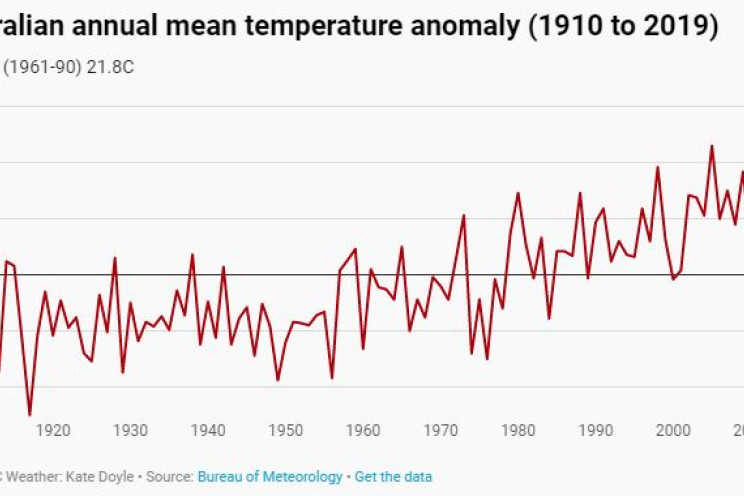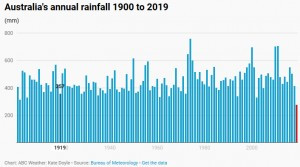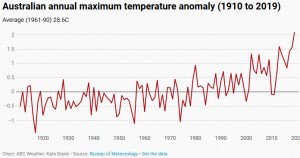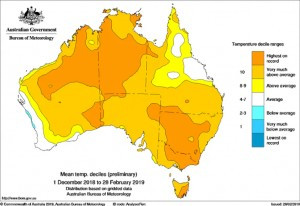
It’s official Australia experienced its hottest and driest year ever in 2019, according to official data released by the Bureau of Meteorology (BoM).
The annual average temperature was 23.32C - which was 1.52C above the long-term average between 1961-1990.
Australia is also in the midst of one of the worst droughts on record, with new figures showing the average rainfall for last year was at its lowest ever - at just 277.63 millimetres.

The daytime temperature also hit record highs with 2019 seeing an average maximum of 30.69C - higher than the previous record in 2013 of 30.19C.
Several other records were smashed in Australia last year, including the record for the country’s hottest day ever, which was broken twice in December.
On December 18 the average maximum temperature in Australia rose to 41.9C, just one day after a record of 40.9C was achieved.
Prior to that, Australia’s hottest day was recorded on January 7, 2013 when temperatures reached 40.3 degrees

Individual states around the country also saw some of their hottest days within the last year.
In NSW, temperatures reached 1.95C above the long-term average – 0.27C higher than the previous record set in 2018.
Western Australia also beat its previous heat record set in 2013 by 0.58C, with temperatures 1.67C higher than average.
The data which is due to be released in a full report next week indicated that the country will expect to see these dry and hot temperatures carry on into the new year.
High temperatures have been blamed for a horror bushfire season which has resulted in 17 deaths and destroyed more than 1,400 homes.
More than 100 fires were still burning in New South Wales and Victoria which has seen more than 100,000 hectares destroyed.
BoM is not expected to provide an official statement until it releases its annual climate statement on January 9.




